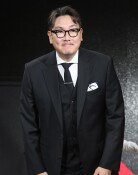True acts of patriotism
True acts of patriotism
Posted January. 21, 2025 08:19,
Updated January. 21, 2025 08:19
Protestors against the arrest of President Yoon Suk Yeol, who stormed into the Seoul Western District Court, resembled the U.S. Capitol Attack that happened on Jan. 6 four years ago. Amid suspicions of election fraud raised by the president, angry conservative supporters rushed into an institution symbolizing democracy, breaking windows and doors and leaving the interior in ruins. Groups such as the Proud Boys, which advocates conspiracy theories, led violent clashes with the police.
Political violence targeting legislative or judicial institutions is a severe issue on its own, but what makes it more concerning is that it is highly likely to be repeated and spread. The rule of law respected in a democracy is no longer respected, driving internal and external conflict. It pushes political polarization to the extreme. A riot drives anxiety and distrust, leading to increased deployment of public power, which is wasteful for the nation.
Those gathered at the Western District Court demanding the release of President Yoon are supporters whom President Yoon calls “patriotic citizens.” These are the people to whom President Yoon's message of encouragement in his letter was directed to protect the “Republic of Korea, which is in danger due to the activities of sovereignty-encroaching forces and anti-state forces inside and outside the country.” These people include those who are sincere about building the nation's wealth and protecting its security. Ranging from students in their 20s to businessmen in their 80s, many people aligned with the values of conservatism and came forward with the determination to protect the Republic of Korea based on these values.
Due to the recent violence, however, their sincerity will be masked and dismissed as ruthless forces driven by far-right YouTube conspiracy theories. They are duly criticized for tarnishing Korea's external image and damaging its national reputation. Hopes of Korea joining the group of eight major countries (G8) or being incorporated into a group of advanced countries such as the G10 have become wishful thinking. It is lamentable that we have strayed too far from the premise of “national trust in maintaining a stable liberal democracy.”
Three people have already been arrested for attempting to commit suicide or clashing with the police at the Constitutional Court. The judge who issued the arrest warrant for President Yoon had to request personal protection. The situation is very concerning, especially regarding what unexpected situations may occur where tensions are running high. Much energy is spent focusing on filling the gaps in the rule of law. Is such extreme behavior an act of patriotism that responsible, patriotic citizens would do?







